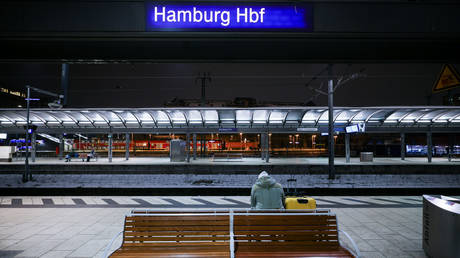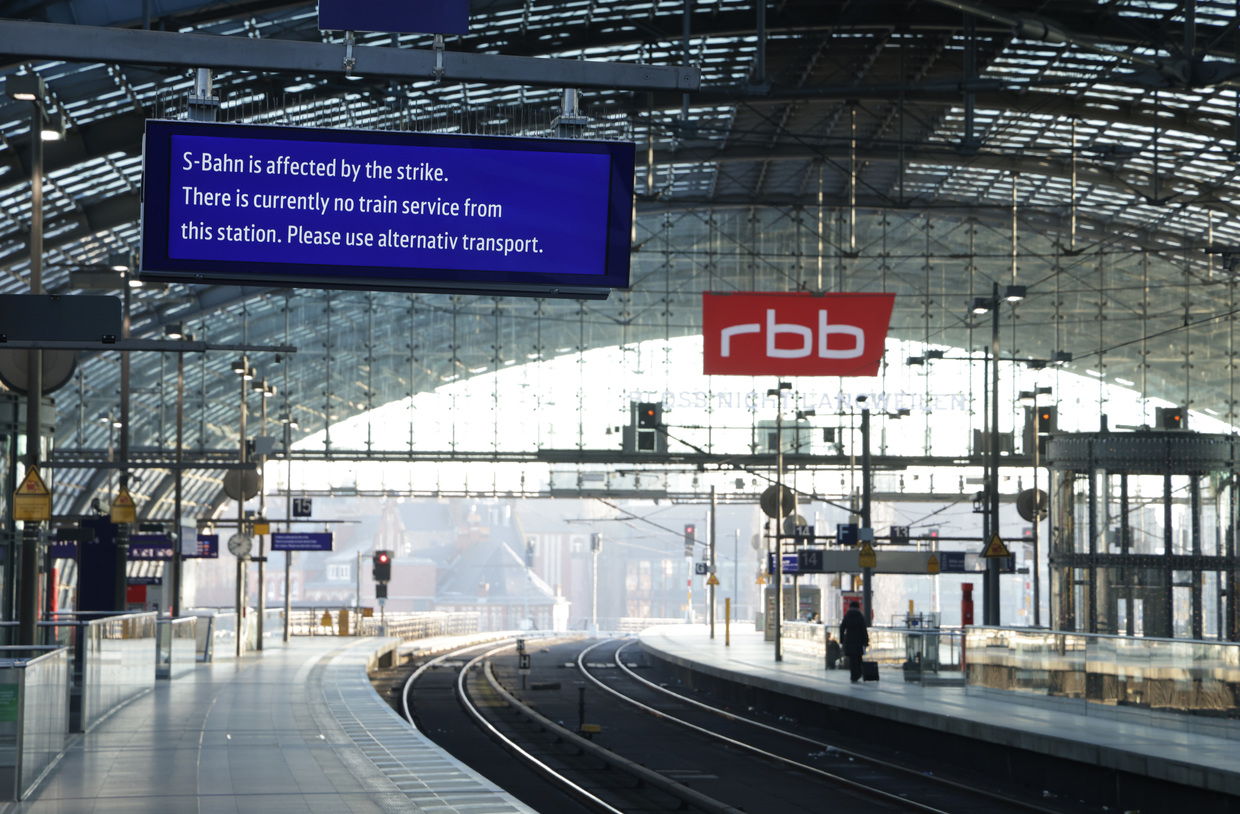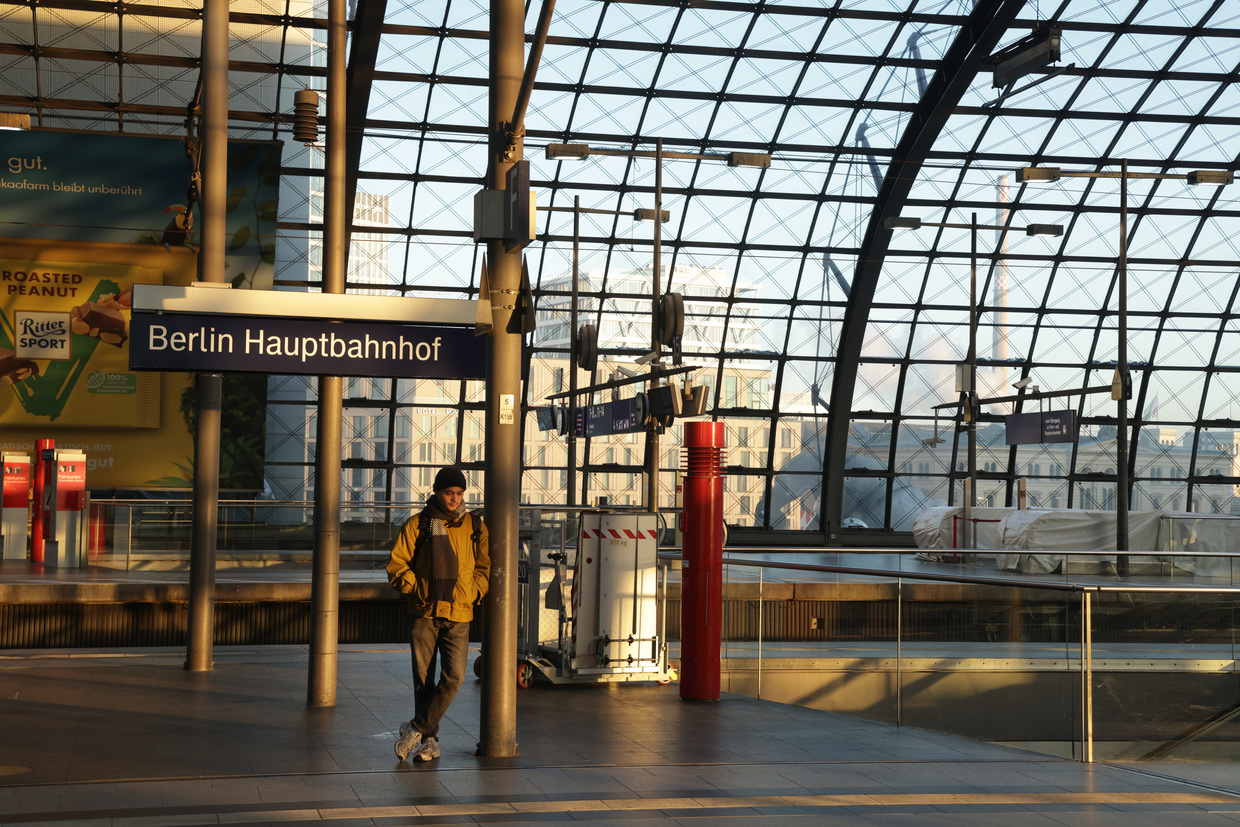
An action by train drivers, coupled with an ongoing protest by farmers, has brought transportation in many cities to a near halt
Train drivers in Germany have gone on a large-scale strike, with major transportation disruptions across the country expected to last for several days. The situation is complicated by a similar campaign launched in December by German farmers, who are blocking roads to protest against the government’s agricultural policies.
The Deutsche Bahn (DB) rail operator warned on Monday of “massive restrictions” on its long-distance, regional and commuter routes from Wednesday to Friday due to a strike by Gewerkschaft Deutscher Lokomotivfuhrer (GDL), the country’s railway union. It advised passengers to “refrain from unnecessary travel,” noting that only a “very limited basic train service” will be available during this period.
On Tuesday evening, freight transport drivers were the first to begin the protest action, with their passenger sector counterparts joining them at 2am on Wednesday. As a result, around 80% of usual long-distance services were canceled.

© Sean Gallup/Getty Images
Photos from several German cities, including Berlin and Hamburg, show empty platforms that would usually be packed with commuters.
GDL said the strikes hinged on DB’s failure to address its “core legitimate demands.” The union has called for a reduction of working hours from 38 to 35, as well as for a wage increase of €555 ($607) per month, on top of a lump sum payment of €3,000 to compensate for inflation.

© Sean Gallup/Getty Images
DB has rejected the working time demand, saying it would have to hire 10,000 new employees in an extremely tight labor market to fill the gap. However, it offered to negotiate on expanding existing working time models. It also proposed an 11% wage increase and a one-time €2,850 inflation compensation bonus.
The rail strike comes as farmers across Germany started a week-long nationwide protest on Monday, blocking roads and highways with tractors. The uproar stems from the government’s plans to reduce or scrap tax breaks for the agriculture sector, as well as cutting diesel subsidies.
READ MORE: Germany could face its own ‘Maidan’ – Medvedev
Commenting on the protests, former Russian president Dmitry Medvedev remarked that, while Berlin was set to slash agricultural expenses, it was ramping up its military support for Ukraine. In November, German Defense Minister Boris Pistorius announced that his country would double its assistance to Ukraine to €8 billion ($8.76 billion) in 2024.
The ex-president also noted that, if the protests continue, they could result in a new Ukrainian-style Maidan – a Western-backed coup that took place in Kiev in 2014 – and topple German Chancellor Olaf Scholz. The latter’s approval rating has recently hit a historical low, with a survey by the INSA polling institute suggesting that 64% of respondents want him out.




